As a BetterHelp affiliate, we receive compensation from BetterHelp if you purchase products or services through the links provided
EMDR (Eye Movement Desensitization and Reprocessing) is a powerful therapeutic approach designed to help individuals overcome the emotional turmoil and limiting beliefs born from traumatic experiences. As a cutting-edge therapy, its popularity continues to grow in various parts of the world, including the beautiful city of Chicago. With increasing number of local practitioners offering EMDR therapy, it’s becoming more accessible to those seeking a transformative healing experience.
In the bustling city of Chicago, countless EMDR therapy providers cater to a wide range of mental health issues, including PTSD and other trauma-related disorders. By integrating this innovative approach into their therapeutic toolkit, these dedicated therapists enable clients to break free from the shackles of their past and embrace a brighter future. Chicago’s EMDR therapists are trained and certified, ensuring their clients receive the highest quality of care during their healing journey.
Key Takeaways
- EMDR therapy addresses traumatic experiences using a comprehensive approach and is increasingly popular in Chicago.
- Various certified therapists specialize in EMDR, making it accessible to those in need.
- Skilled practitioners provide essential support for clients seeking transformative change.
Understanding EMDR
 The Origin of EMDR
The Origin of EMDR
EMDR, or Eye Movement Desensitization and Reprocessing, is a therapeutic approach developed by Dr. Francine Shapiro in the late 1980s. This therapy aims to help people process past traumatic experiences and achieve a healthier mindset. Dr. Shapiro’s extensive work with EMDR led to its acceptance as an effective treatment option for a variety of mental health issues, especially those related to trauma.
EMDR and Trauma
Trauma can have a lasting effect on your life, often leading to emotional distress, anxiety, and other mental health issues. EMDR therapy is designed to help you deal with these traumatic memories, allowing you to process and overcome them in a safe and supportive environment. Working through traumatic experiences can significantly reduce their impact on your overall well-being.
Some of the benefits of EMDR for addressing trauma include:
- Reducing the intensity of negative emotions related to traumatic events
- Decreasing the frequency and intensity of intrusive memories or flashbacks
- Helping you create new, healthier beliefs about yourself and the world around you
The Theory behind EMDR
EMDR therapy is built upon the Adaptive Information Processing (AIP) model, which suggests that our brains can heal and process information. However, when traumatic events occur, this natural processing can become disrupted, leading to emotional and psychological distress.
The goal of EMDR is to stimulate your brain’s natural healing process through a series of eye movements or other bilateral stimulation techniques. This process helps you access and reprocess traumatic memories, replacing them with healthier and more adaptive beliefs.
During EMDR therapy, you will be guided through eight phases, which include:
- History and treatment planning: Identifying your specific needs and goals
- Preparation: Building trust and safety in the therapeutic relationship
- Assessment: Identifying specific memories or beliefs to target in therapy
- Desensitization: Using bilateral stimulation techniques to reprocess traumatic memories
- Installation: Strengthening healthier beliefs and perspectives
- Body scan: Identifying and releasing any remaining physical tension or discomfort
- Closure: Reviewing the progress made in the session and creating a plan for between-session self-care
- Reevaluation: Assessing the effectiveness of treatment and addressing any unresolved issues
By understanding the foundations and benefits of EMDR therapy, you’re better equipped to decide whether this treatment is a suitable option for you. Chicago offers several qualified EMDR therapists and training opportunities to assist in your journey toward healing and personal growth.
EMDR Therapy in Practice
 The EMDR Process
The EMDR Process
EMDR therapy, also known as Eye Movement Desensitization and Reprocessing, is a powerful therapeutic approach for individuals seeking help with trauma, anxiety, and other mental health concerns. In Chicago, there are trained EMDR therapists available to guide you through the process.
During EMDR sessions, you will:
- Focus on a particular event, memory, emotion, or belief.
- Engage in bilateral stimulation, such as eye movements, to access both sides of the brain.
- Work with your therapist to process and desensitize the emotions related to the issue.
The EMDR process typically involves several phases: history taking, preparation, assessment, desensitization, installation, body scan, closure, and reevaluation. With consistent practice and support, you can experience relief from the impact of past events and negative beliefs that may be holding you back.
Techniques and Tools in EMDR
EMDR therapy employs various techniques and tools to help make the process more effective, which may include:
- Visual: Eye movements are the most common form of bilateral stimulation in EMDR sessions. Your therapist might ask you to follow their finger or a light bar with your eyes, keeping your head still as you move your eyes from side to side. This engages both sides of your brain, facilitating processing and desensitization.
- Tactile: Other techniques may involve tactile sensations, such as tapping on alternate hands or using buzzers in each hand. This offers another form of bilateral stimulation, particularly for those who struggle with eye movements.
- Auditory: Bilateral auditory stimulation can also be used, in which you listen to sounds or tones alternating between your left and right ears.
Keep in mind:
- Find a qualified EMDR therapist in Chicago to guide you through the process.
- Be prepared to invest time and energy in the therapy sessions, as EMDR can be emotionally intensive.
- Trust the process and allow yourself to experience emotions in a safe and supportive environment.
With a professional EMDR therapist by your side, you’ll soon see the transformative impact of this therapeutic approach on your emotional health and well-being.
Benefits of EMDR Therapy
Eye Movement Desensitization and Reprocessing (EMDR) is an innovative therapy method that has demonstrated effectiveness in treating a variety of mental health disorders. This section will cover the benefits of EMDR therapy for anxiety, depression, and PTSD.
EMDR for Anxiety
EMDR can be particularly beneficial for individuals suffering from anxiety. Through this therapy, you’ll be able to:
- Identify and process the root causes of your anxiety
- Transform limiting beliefs and negative thoughts associated with anxiety
- Improve coping mechanisms for anxiety-triggering situations
- Reduce the intensity of anxiety symptoms and increase overall confidence
Applying EMDR strategies can foster a healthier sense of self and help manage anxiety more effectively.
EMDR for Depression
Depression can be a debilitating condition, but EMDR offers hope for those seeking relief. Through EMDR therapy, you can expect to:
- Uncover and process past experiences and trauma contributing to your depressive symptoms
- Replace unhelpful thought patterns with more positive beliefs
- Enhance emotional regulation and mood stabilization
- Gain a greater sense of control and optimism in your life
Utilizing EMDR to address depression can lead to significant improvements in mood and overall well-being.
EMDR for PTSD (Post-Traumatic Stress Disorder)
EMDR has been widely recognized for its effectiveness in treating PTSD. This therapy can help you:
- Process traumatic memories and reduce the emotional impact of these events
- Alleviate symptoms of PTSD, such as flashbacks, insomnia, and emotional numbness
- Develop healthy coping strategies and resilience against future stressors
- Experience greater self-esteem and improved relationships
Incorporating EMDR therapy into your treatment plan for PTSD can lead to substantial strides in recovery and personal growth.
 Finding an EMDR Therapist in Chicago
Finding an EMDR Therapist in Chicago
Consultation and Appointment
When searching for an EMDR therapist in Chicago, finding a professional who can address your specific needs is crucial. Start by browsing reputable websites like Psychology Today and TherapyDen, which list EMDR therapists in Chicago. Additionally, consider visiting EMDR Chicago for information on local specialists.
Once you’ve compiled a list of potential therapists, contact their offices to schedule a consultation. During your consultation, please take note of the therapist’s communication style, approach, and level of experience with EMDR to ensure they’re a good fit for your needs. Remember that choosing the right therapist is crucial to your healing journey.
 Types of Therapists
Types of Therapists
Several types of therapists offer EMDR therapy in Chicago, including Licensed Clinical Social Workers (LCSWs) and Licensed Clinical Professional Counselors (LCPCs). These professionals are trained in various therapeutic approaches and may specialize in different areas, such as trauma or anxiety disorders.
When selecting an EMDR therapist, consider the following factors:
- Education and credentials: Look for therapists with licenses in their respective fields, such as an LCSW or LCPC.
- Specialization: Choose a therapist who specializes in EMDR and has experience treating clients with similar concerns to yours.
- Location: Find a therapist with an office in a convenient location in Chicago, whether you prefer a downtown office or a location closer to your home or workplace.
- Availability: Ensure the therapist is accepting new clients and has availability that aligns with your schedule.
Considering these factors, you’ll be better equipped to find an EMDR therapist in Chicago who can help you overcome your challenges and enhance your overall well-being.
Additional Therapeutic Resources in Chicago
Besides EMDR therapy, Chicago offers various resources to support your mental health journey. In this bustling city, numerous practices and wellness centers offer a wide range of therapeutic resources.
Mental Health Services – Many mental health providers in Chicago offer diverse treatments, such as Cognitive Behavioral Therapy (CBT), Dialectical Behavior Therapy (DBT), and mindfulness-based therapies. Browse through the list of therapists in Psychology Today’s Chicago directory to find one that suits your needs.
Yoga and Mindfulness – Incorporating yoga and mindfulness exercises into your self-care routine can significantly benefit your mental health. Chicago is home to several yoga studios, such as CorePower Yoga and YogaSix, where you can practice different styles and intensities of yoga. Check out their class schedules online or attend a workshop to find the right fit.
Support Groups – Joining support groups can be a valuable addition to therapy, as they provide a safe space to share your experiences and connect with others who may be going through similar challenges. Some organizations, like NAMI Chicago, offer a variety of mental health support groups you can access free of charge.
Wellness Centers – Wellness centers in Chicago, such as Raby Institute or Chill Meditation + Massage, offer many services to help alleviate stress and enhance overall well-being. These may include meditation classes, massage therapy, acupuncture, or nutrition counseling. Explore their offerings to find what resonates with you.
By combining EMDR therapy with other mental health and wellness resources available in Chicago, you can create a comprehensive approach to support your well-being. Don’t hesitate to explore these options and invest in your mental health journey.
Potential Drawbacks of EMDR Therapy
EMDR therapy has proven to be a helpful treatment for individuals who have experienced traumatic events. However, it’s essential to be aware of the potential drawbacks associated with this therapeutic approach.
- Distress during the process: EMDR therapy aims to help you process and release traumatic memories by revisiting those memories. This can cause temporary distress during the therapy sessions as you’ll be confronting painful experiences. Working with a qualified therapist who can help you manage this distress is crucial.
- Emotional reactions: As you work through your traumatic memories during EMDR therapy, you may experience heightened emotions or feel more emotional in general. This is a normal part of the healing process, but some people find it overwhelming. Make sure to communicate openly with your therapist if you’re struggling with intense emotional reactions.
- Deterioration before improvement: Sometimes, individuals may notice their symptoms worsen before getting better as more unpleasant memories come to the surface. Remember that it’s a part of the overall process, and try to trust that improvement will come with time and the continued processing of your memories.
- Sleep disruptions, intrusive thoughts, & vivid dreams: Due to the focus on traumatic memories, some clients might experience sleep disruptions, intrusive thoughts, and vivid dreams in the early stages of therapy. These side effects usually subside as treatment progresses and your brain continues to process and release repressed emotions.
It’s imperative to discuss any concerns you have with your therapist before starting EMDR therapy in Chicago. They will help you understand the process better and support you through these potential drawbacks to ensure a positive outcome. Remember that therapy is a partnership, so keeping the communication lines open with your EMDR therapist is vital to achieving the desired results.
EMDR and Other Therapeutic Modalities
EMDR therapy has proven to be an effective treatment option for trauma and other psychological issues. In combination with other therapeutic approaches like Cognitive Behavioral Therapy (CBT), Dialectical Behavior Therapy (DBT), and Acceptance and Commitment Therapy (ACT), EMDR can be even more beneficial for clients. Let’s take a closer look at how these integrations work.
EMDR and CBT
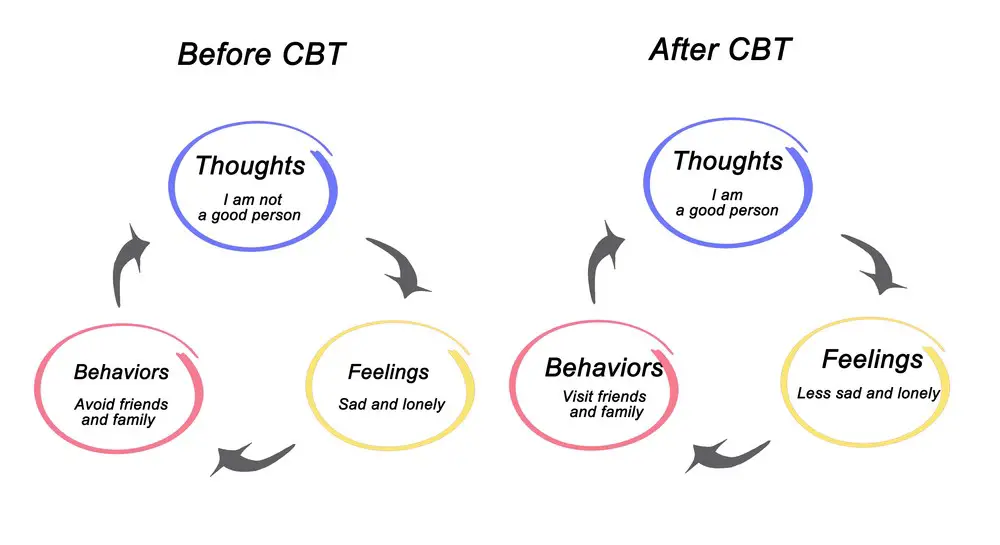 EMDR and Cognitive Behavioral Therapy (CBT) share similarities in their aims to modify problematic thoughts and behaviors. CBT focuses on identifying and challenging negative thought patterns, while EMDR targets the underlying memories causing these patterns. Combining both approaches can enhance the therapeutic process by:
EMDR and Cognitive Behavioral Therapy (CBT) share similarities in their aims to modify problematic thoughts and behaviors. CBT focuses on identifying and challenging negative thought patterns, while EMDR targets the underlying memories causing these patterns. Combining both approaches can enhance the therapeutic process by:
- Addressing trauma-related symptoms with EMDR, which can then improve engagement in CBT
- Using CBT skills alongside EMDR to manage symptoms more effectively
EMDR and DBT
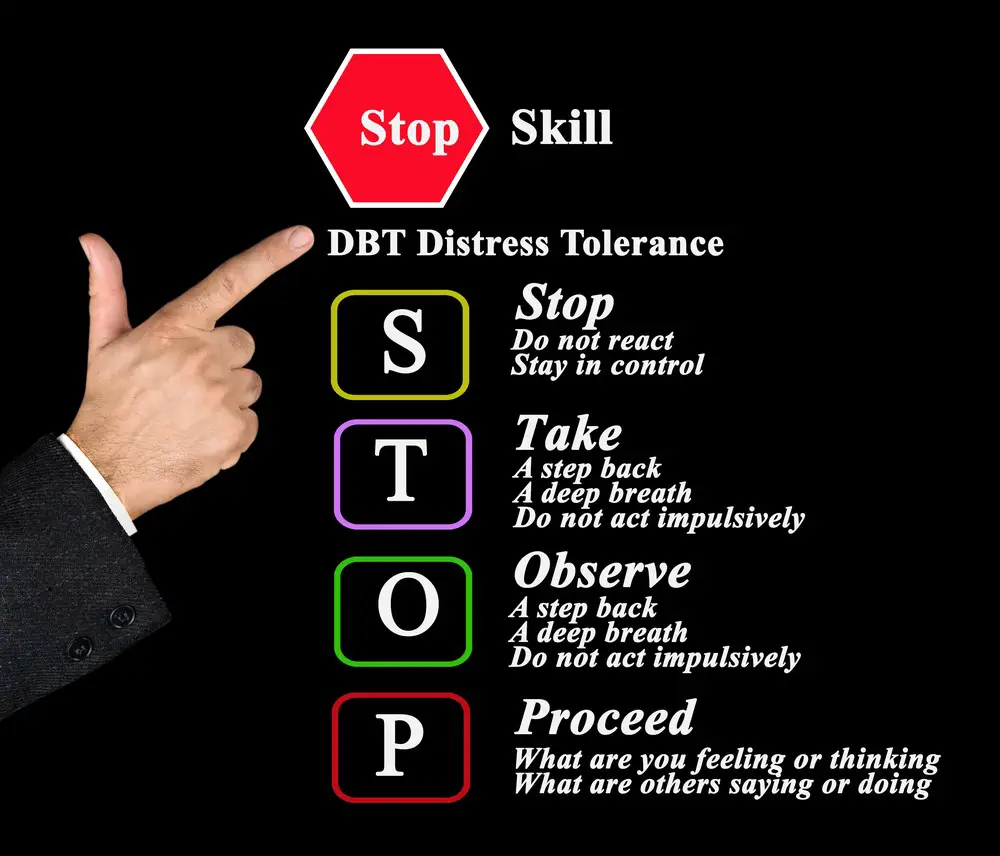 EMDR works synergistically with Dialectical Behavior Therapy (DBT) to help individuals regulate emotions and improve interpersonal relationships. DBT emphasizes skill development in mindfulness, emotional regulation, distress tolerance, and interpersonal effectiveness. Incorporating EMDR with DBT can provide significant benefits:
EMDR works synergistically with Dialectical Behavior Therapy (DBT) to help individuals regulate emotions and improve interpersonal relationships. DBT emphasizes skill development in mindfulness, emotional regulation, distress tolerance, and interpersonal effectiveness. Incorporating EMDR with DBT can provide significant benefits:
- Using EMDR to process traumatic memories, which in turn helps reduce emotional intensity
- Enhancing the effectiveness of DBT skills by decreasing the emotional barriers caused by unresolved trauma

EMDR and ACT
Acceptance and Commitment Therapy (ACT) is a mindfulness-based approach that encourages individuals to accept their thoughts and feelings rather than trying to change or control them. EMDR, by addressing the root cause of negative emotions and thoughts, complements ACT by:
- Facilitating the acceptance of complex memories and emotions through EMDR processing
- Utilizing ACT’s mindfulness and value-based strategies to help clients engage in their lives more fully after resolving past traumas with EMDR
Incorporating EMDR therapy with other modalities like CBT, DBT, and ACT can result in a more comprehensive and effective treatment plan. Each therapeutic approach offers unique skills and techniques, bringing about lasting change and growth for clients in need.
The Future of EMDR Therapy in Chicago
As EMDR therapy gains popularity for its effectiveness in treating trauma, anxiety, and other mental health issues, Chicagoans can expect more providers to incorporate this method into their practices. The future of EMDR therapy in Chicago looks promising, with greater availability and accessibility through various channels.
One significant development to watch for is the growth of teletherapy sessions. With the success of online platforms like Skype, Zoom, and FaceTime, EMDR providers in Chicago, such as Premier EMDR Therapy, now offer online video therapy sessions on HIPAA-compliant platforms. This means you’ll have the convenience and flexibility to access EMDR therapy from home, making it easier for those with busy schedules or limited mobility to participate in their treatment plans.
EMDR Chicago, a local organization, provides consultations, training, and workshops for clinicians seeking EMDR certification. As more mental health professionals become certified in EMDR, access to specialized care for patients in the Chicago area will further expand. So, you can expect to find a growing number of EMDR-certified therapists to guide you through your healing journey.
Additionally, future developments may include a stronger emphasis on early intervention and the incorporation of EMDR therapy into treating couples, families, and groups. This focus on early intervention can foster the development of healthier relationships and a more holistic approach to mental health.
In summary, the future of EMDR therapy in Chicago is bright. With increased accessibility through teletherapy, a growing number of certified therapists, and broader applications for treatment, you can look forward to enhanced support for your mental health needs in the Windy City.
Frequently Asked Questions
What is the process of EMDR therapy?
EMDR therapy consists of 8 phases that work together to address traumatic experiences and promote healing. The process includes identifying targeted memories, negative beliefs, and psychological distress. EMDR therapists then guide clients through eye movement exercises while focusing on the identified targets, which can help clients process and reframe negative memories, ultimately reducing distress and improving well-being.
How effective is EMDR for trauma therapy?
EMDR has gained widespread attention as an effective therapy for treating trauma as well as symptoms of anxiety, depression, stress, and burnout. While individual experiences may vary, EMDR has been proven effective in numerous clinical studies and is endorsed by various professional organizations.
Where can I find trained EMDR therapists in Chicago?
You can find trained EMDR therapists in Chicago through online directories, professional associations, and referrals from mental health providers. You might also consider asking friends or family members if they can recommend a trusted EMDR therapist.
Do Chicago-based insurance providers cover EMDR sessions?
Insurance coverage for EMDR sessions may vary depending on the plan and provider. While some insurance plans cover EMDR therapy, others might require a referral or preauthorization. To confirm your coverage, contact your insurance provider or check if the EMDR therapist you’re considering accepts your plan.
What can I expect during my first EMDR session?
During your first EMDR session, you’ll likely discuss your history, the issues you’re seeking treatment for, and your specific goals for therapy. Your therapist will also explain the EMDR process and address any concerns or questions you may have. Depending on your needs, you may begin the EMDR process or spend more time on intake and assessment.
Are group therapy sessions offered for EMDR in Chicago?
While EMDR is typically provided in individual sessions, some therapists or clinics may also offer group sessions. You can ask potential therapists if they offer group EMDR or search for specialized clinics that focus on group therapy for your specific needs.
- 3 Ways Wearing a Hat Can Help Lower Your Stress Levels - April 19, 2025
- Breaking the Silence: Why Men’s Mental Health Matters More Than Ever - April 15, 2025
- How to Transform a Home’s Patio Space into a Relaxing Space - March 23, 2025
This site contains affiliate links to products. We will receive a commission for purchases made through these links.

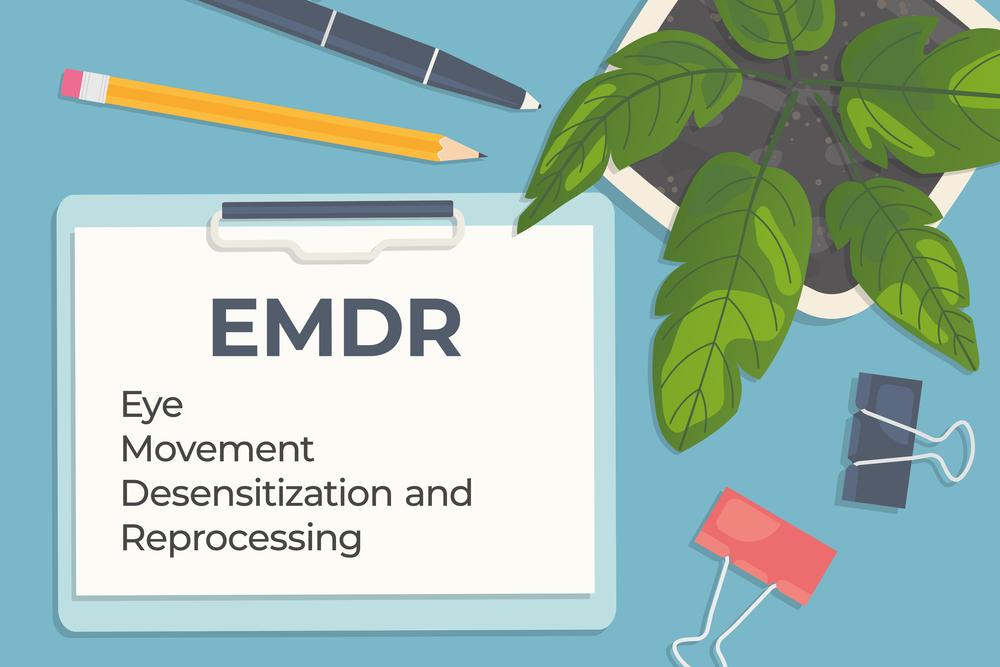
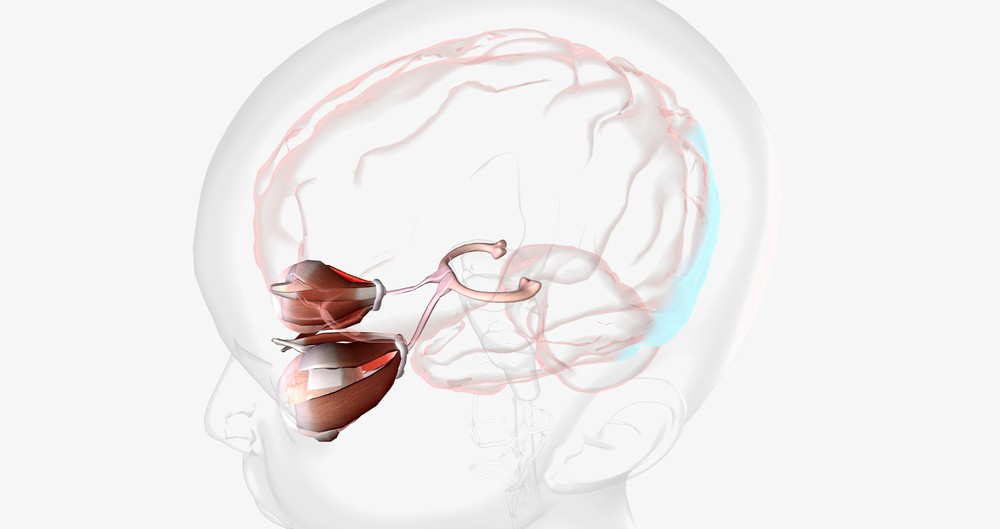 The Origin of EMDR
The Origin of EMDR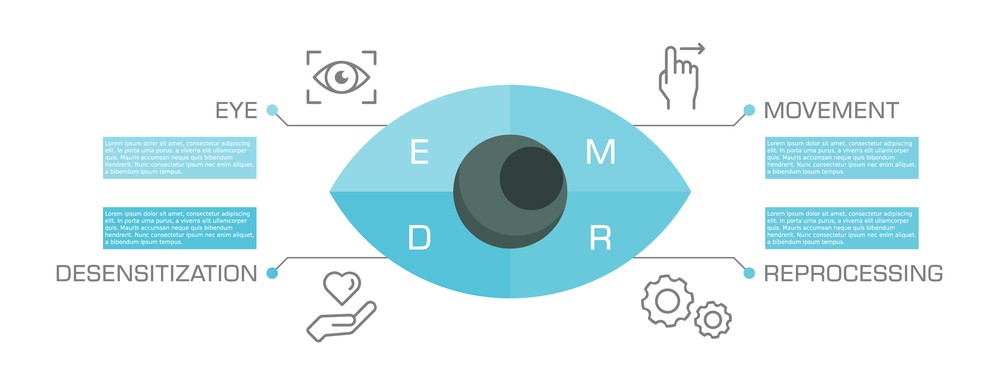 The EMDR Process
The EMDR Process Finding an EMDR Therapist in Chicago
Finding an EMDR Therapist in Chicago Types of Therapists
Types of Therapists
